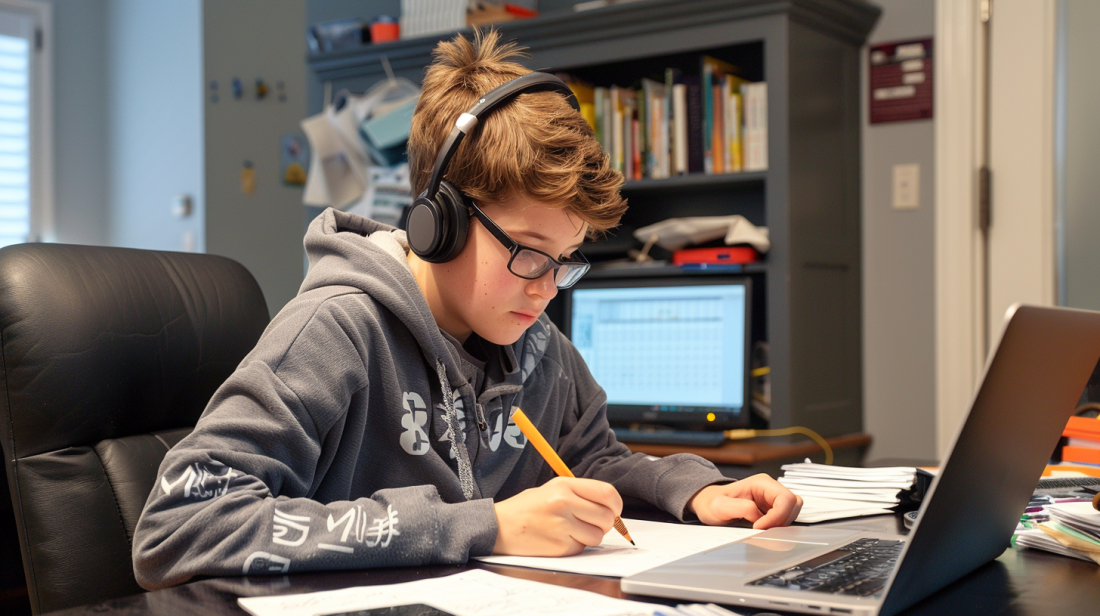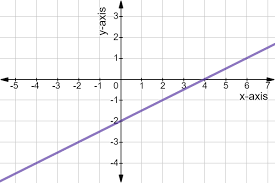11 Essential Math Skills Your 7th Grader Should Know

Most important math skills every 7th grader should know
Here are the top 11 math skills your 7th grader should know by summer.
What math should a 7th grader know?
Unless you’re planning to go into a science, math, or engineering career, you might think that the math concepts you learn in 7th grade won't be necessary later in life. And, you’re mostly right. But knowing these concepts is important for another reason — when you’re 12 and 13 years old, your brain is building important neural pathways and developing the foundation for critical thinking skills. Mastering this type of math helps you think logically, a priceless skill that will benefit you for the rest of your life.
So what math should a 7th grader know before entering 8th grade? Here are the 11 most important math concepts you should know by the end of 7th grade:
Signed Number Operations
Understanding how to add and subtract positive and negative numbers is a foundational skill that remains important, not only in middle school but throughout high school as well. These operations are best visualized using number lines and are crucial for solving more complex math problems later on. You'd be surprised how many high school students struggle with negative numbers!
By mastering negative numbers in the 7th grade, you are saving yourself a lot of headaches in high school. For that reason, negative numbers is the most important math skill every 7th grader should know.
Equations
A solid grasp of solving equations is essential. This includes:
- One-step equations: 𝑥+5=7
- Two-step equations: 2𝑥+5=7
- And more complex equations involving distribution and fractions.
Solving equations is an essential skill for high school mathematics.
Fractions, in particular, are often a stumbling block for students. Many high school math struggles stem from not having a firm foundation in these areas. Be sure your 7th grader can solve one and two-step equations.
Inequalities
Learning to graph and interpret inequalities is another key skill. Understanding the greater than or equal to (≥) sign, graphing inequalities, and solving them within the context of word problems are all vital.

Area of Irregular Figures
Basic geometry is introduced with tasks such as finding the area of circles, rhombuses, and parallelograms. Knowing how to find the radius of a circle and understanding the significance of Pi beyond just being a symbol are important concepts. These geometry skills are some of the most important math skills your 7th grader should know.
Volume and Surface Area
Students should know how to calculate the volume and surface area of three-dimensional shapes like pyramids, cones, and rectangular prisms. These measurements build on the understanding of two-dimensional and three-dimensional space.
Proportion and Ratios
Students should know how to calculate proportions and ratios from word problems. Many students find word problems challenging because they require extracting relevant information from a text. However these problems are excellent for developing critical thinking and problem-solving skills, and they build foundational knowledge for more complex problem-solving in higher grades.
Slope
The concept of slope, which describes how steep a line is, is introduced in 7th grade through real-life analogies like driving uphill or downhill. This sets the stage for graphing linear equations and understanding the slope-intercept form.

Graphing Linear Equations
If you're wondering what math a 7th grader should know, definitely put slope on your list!
Graphing linear equations and understanding the intercepts, especially where a line crosses the y-axis, is crucial for every 7th grader to know. This forms the basis for more advanced algebraic concepts.
Angles
In 7th grade, students explore the measurement of angles, learning about complementary angles (which add up to 90 degrees) and supplementary angles (which add up to 180 degrees). They also study angles formed by parallel lines intersected by a transversal.
Line Segments and Rays
In geometry, understanding the difference between lines (which go on forever), line segments (which have two endpoints), and rays (which start at one point and go on forever in one direction) is fundamental.
Statistics
For most people, statistics is the most relevant area of math because it’s used to make sense of societal, cultural, and global events. Understanding how to create and interpret frequency tables, histograms, box and whisker plots, and measures of central tendency (mean, median, mode, and range) is crucial for fields like psychology, sociology, and any area involving data analysis.
Conclusion
These math concepts are much more than just academic milestones; they’re the building blocks of logical thinking. Mastering these topics by the end of 7th grade sets students up for success well beyond high school. This is the foundation for the skills they’ll need to navigate a variety of challenges both in and outside the classroom. If you've ever asked yourself "what math should a 7th grader know?" this article should clarify all your concerns.

